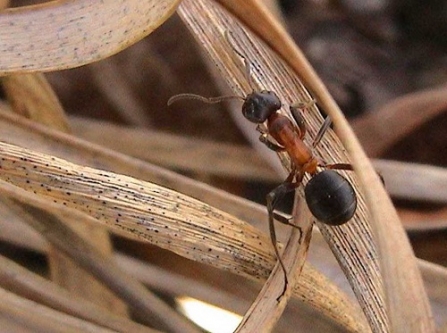Chudleigh Knighton Heath. Photo, Simon Williams
Chudleigh Knighton Heath
Know before you go
Dogs
When to visit
Opening times
Open at all timesBest time to visit
March to OctoberAbout the reserve
Chudleigh Knighton Heath is a heathland mosaic of gorse, heather and grassland. This was once the landscape which stretched for miles across what is known locally as the Bovey Basin. Today, the nature reserve is a reminder of what has been lost and also acts as a vital heathland home to some special wildlife.
Ash dieback
The disease ash dieback is now widespread in the UK and is present at many of our nature reserves, so we carry out tree felling across our sites in winter months. For your own safety please observe temporary path diversions and closures.
Where possible we will leave affected ash trees in place to decay naturally as an important habitat for wildlife. We plan to only fell diseased ash trees which pose a threat to people or infrastructure. Before trees are felled, we will check whether any rare or protected wildlife is present. If it is, we will postpone or avoid felling these trees. No felling will take place during the bird nesting season.
DWT’s Saving Devon’s Treescapes project are working with communities, landowners and businesses to help make Devon's precious treescapes more resilient in the face of ash dieback. Find out how you can get involved here.
NOTICE: If you are visiting our reserves, please note that there have been instances of H5N1 Avian bird flu found in birds in Devon. There is very low risk to public health, but we do ask that if you come across any unusual or unexplained bird deaths on or near our reserves, please do not touch them and avoid allowing your dog to come into contact with dead birds. Please report them to Defra here or call 03459 335577 and also report your findings to DWT by email at contactus@devonwildlifetrust.org.
Habitat
Contact us
Environmental designation
Location map

We were very grateful for a National Highways grant of £119,739 through the Network for Nature programme, which enabled these habitat improvements:
- Restored heathland across 38 hectares, partly to improve conditions for the very rare narrow-headed ant
- Purchased a tractor with front collector and flail for an enhanced cutting regime to complement grazing cattle
- Improved age structure, sward height, and biodiversity through managing areas of heather, gorse, and scrub – partly by staff and local volunteers
- Created bare ground scrapes for resident invertebrates, reptiles and nightjars, and encouraged the return of woodlarks
- Cleared deteriorated fence line, repaired 5.2 km of fencing and installed 2.2 km of new fencing
- Installed two livestock handling pens and ten field & pedestrian gates
How to get to Chudleigh Knighton Heath
Nightjar at Chudleigh Knighton Heath. Photo, Chris Root
Summer nights
From May to July an evening walk on Chudleigh Knighton's becomes a a magical experience thanks to the accompanying sounds of calling nightjars. These African migrant birds come to the reserve to breed and raise their young. By day they use their wonderful camouflage to stay hidden, but at night they take to the air and bring the reserve to life.
The nature reserve's ponds and areas of wet heathland also make this a great place to see dragonflies and damselflies.

Narrow headed ant. Photo, John Walters.
Take the ant trail
In May 2016 Devon Wildlife Trust and Hennock Parish Council opened an 'Ant Trail'. This leads visitors on a circular route through the reserve and back to the nearby village of Chudleigh Knighton.
The trail is named after the reserve's most famous local resident: the narrow-headed ant. Chudleigh Knighton is the only place in England in which the ant is still found.
Visit our nearby reserves
Combine a visit to this nature reserve with one to nearby Little Bradley Ponds. If you like heathland then you'll also enjoy visiting our Bovey Heathfield nature reserve - just 10 minutes away by road. You can visit all three nature reserves by taking our 4.5 mile Bovey Basin Wild Walk.
Our Teigngrace Meadow nature reserve is also just a short journey along the A38.
Become a member and support our work
The vital work we do for nature depends on the support of people who care about the future of Devon’s wildlife and wild places.








